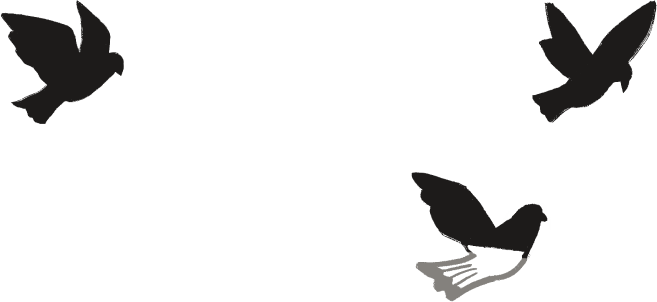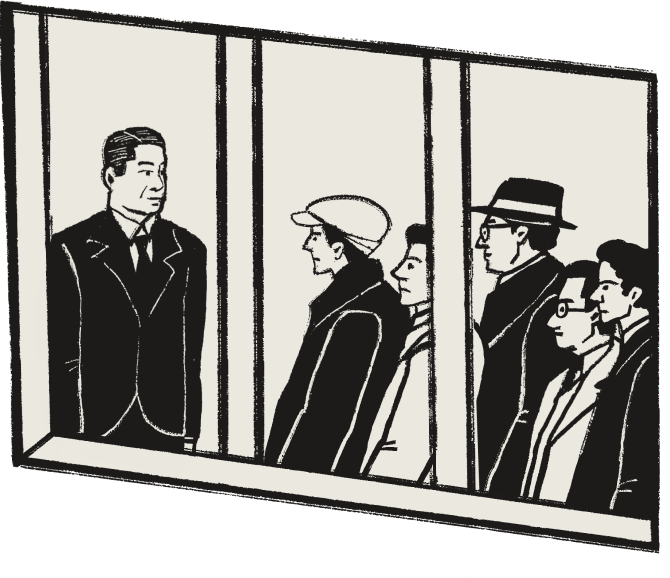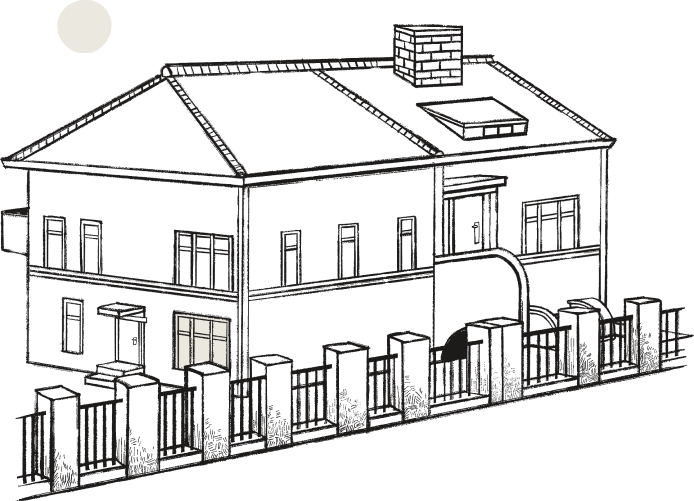Noble Rogues
A very Noisy morning
Go away, Akio, you foolish cat, the baby pram is full of your hair again, - the maid, that country pumpkin, scolds me. If the sisters of St. Zita didn’t help her, she would still be standing in the train station, her eyes wide in horror, nervously clutching the bag with woolen socks. And now she lives in a warm home, has her own room with a balcony, has a job - if you can call a job sweeping dust with a feather broom from the green table lamp, from the top of the piano, I watch the broom dancing in her hand like a jumpy sparrow.
The sparrows of Kaunas are the most beautiful music! But the master thinks otherwise. He sits at the piano playing the same “Maiden’s Prayer” every day, I sometimes wonder if I should pray that Chiune would finally play something else. I barely stop myself from biting him in the toe and just rub against his calf in the striped trousers. Akio, - he tells me then, - Akio, you foolish cat.


But this morning something is wrong. Usually, if not for the sparrows and the sounds of the piano, Vaižganto Street is very quiet, but this morning you can hear a strange roar from the outside. I jump on the windowsill and carefully lift the crocheted curtain with my ears. Outside, by the gate, people are flocking. A whole roaring crowd! I don’t even notice all of the family standing next to me - alarmed Chiune, confused Yukiko and Setsuko, who just served breakfast to the kids. The consulate opens at 9 a.m., but seeing the curtain move, the people outside start shouting out loud. Chiune instructs the driver Boleslovas to find out the cause of the commotion. While Setsuko gingerly photographs the crowd through the gap in the curtain, Boleslovas comes back from the street. “They ask for visas.”

Later on, everything was happening like in a dream: people, just people - the cat is left out. The maid was trying to go shopping for food like she does every day, but as soon as she touched the gate, the refugees flocked to the yard, and Gudze with Boleslovas had to ask them to return back to the street. Finally, five crowd representatives were invited to the consulate. Their leader, Warhaftig, explained the problem as calmly as possible: Polish Jews who had fled the Nazis must now flee the Soviet Union, the imminent deportation to Siberia, and must therefore obtain a Japanese transit visa. Like those two Dutch students who got their visas a few days ago. If the Jewish refugees receive Japanese transit visas, then the Soviets (for a hefty sum of money) will let them pass through their territory to Vladivostok. It will then be possible to use Curaçao visas as the final destination and not really stay in Japan.



Two transit visas is normal, but outside at the gate there are two
hundred people - you need the authorities approval to issue visas for
such a mass, you have to write a request to Tokyo.
Three times Chiune Sugihara tries to send a coded telegram to his authorities.
Let me issue transit visas. The Soviets marched their army into the territory
of Lithuania, all people loyal to the former Lithuania - former Lithuanian
officials, teachers, lawyers, Polish soldiers, Jewish Bundists and Zionists
- were arrested, Jewish newspaper editors taken to Russia and killed, a crowd
of Jewish refugees spend nights in front of the Japanese Consulate, I ask
permission to issue visas to these people.

But all three times comes the answer which means: no. Do not issue visas to those who do not have any written proof that they have a guaranteed future residence in a country other than Japan. Do not issue visas to those who do not have enough money.
No one has any written proof. No one has enough money, most of them have no money at all. Zwartendijk’s Curaçao visa costs 11 litas, Japanese transit visa usually costs 2 litas. Even this amount may already seem considerable to those waiting at the gate. It takes thousands to officially get to Japan. Thousands of money.


Chiune Sugihara is worried sick. He no longer sleeps at night. People at the consulate gate are tired and cold - it’s the end of July, but the summer is unusually chilly this year, especially at night - at night, waiting people are forced out by Russian soldiers. Yukiko, his wife, writes another poem:
Should he or shouldn’t
Issue requested visas
He no longer sleeps
During the night, I can hear
His bed moaning as in pain